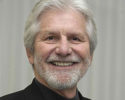Leaders Want to Make a Difference
By Terry O’Banion
October 13, 2016
All community college leaders want to make a difference; it is in their DNA. It is key to their value base; it is the driving motivation that keeps them in the game in spite of the very hard challenges.
Some choose to make a difference by gathering resources, some by forging partnerships, some by building facilities, some by creating consensus and collaborative efforts. All efforts have some impact on the college and its students. But at this juncture in the continuing development of the community college, most presidents and leaders will be judged by their efforts to champion student learning (often measured by persistence, graduation and transfer rates) as the overarching mission of the community college.
Leaders who champion learning understand that learning as a process and product must be the foundation of every policy, practice and program and in the way personnel are used across the institution. Such leaders help their colleagues create a learning-centered culture by embedding two key questions as the mantra of the college: Does this action improve and expand learning? How do we know this action improves and expands learning?
Does this action improve and expand learning?—College leaders who place a priority on learning will urge colleagues to, and will themselves, ask this question about the activities and practices of the college. Does this new advising program improve and expand student learning? Does this new core curriculum improve and expand student learning? Does the college’s committee and governance structure improve and expand student learning? Does this staff development program improve and expand staff and faculty learning?
What if every unit that creates and proposes a budget were to ask: Does this budget improve and expand student learning? By asking the question over and over, college staff would be encouraged to interview and select staff who meet learning-centered criteria, recognize and reward faculty who create outcomes of learning, focus the governing board on learning as a priority, and create a long-range plan based on learning principles.
How do we know this action improves and expands learning?—This is the harder question of the two, but it naturally and must follow the first. Community colleges can no longer base their credibility on anecdote and speculation or by reporting the number of students enrolled in high-impact programs such as Learning Communities and the First-Year Experience. Community colleges have joined the mainstream of assessment and accountability and now ask such questions as: How did you arrive at that conclusion? How has this idea worked in other situations in which you have been involved? Do you think we can measure the effectiveness of this practice? How would you go about assessing the effectiveness of this policy? What can I tell the board to demonstrate that the program you are proposing will improve and expand student learning?
Leaders who want to make a substantial and long-term difference will champion learning as their first priority and will work incessantly to embed it as the foundation of the culture of their institution.
Continue the conversation on our LinkedIn group.



